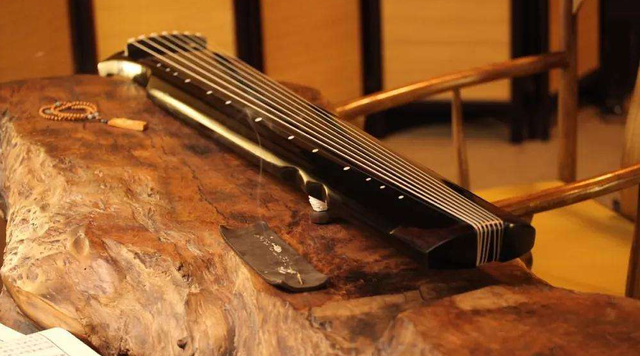The problem that 99% of guqin beginners will encounter: practice every day without progress
"I already know how to play a few pieces, but each piece doesn't sound good. I practice the piano every day, but I can't feel my progress. Why is this?" This is what guqin beginners often fall into. A vicious circle!

Those who have such doubts should pay attention. This is because when you practice the piano, you only pursue the completion of the song without paying attention to the training of basic skills, and naturally it does not sound good. The solution to this problem is as follows:
1. Deduct the details of the single sentence of each song, repeat the practice
The method of learning and practicing the piano is never to practice whole-heartedly, but to split the tune into sentences, practice and ponder each sentence repeatedly, and after the hand shape and timbre of each sentence are very standard, the "dots" are strung together into "dots". "Line", when reaching the "face", don't practice the whole song unless you are very proficient in a single sentence.
2. Listen to the original rhythm and melody first
In the long history of guqin, different genres have been formed due to the influence of regions, the influence of teachers, and the differences in the distribution of musical scores, and the interpretation styles of different genres of the same piece are also different. Some highly skilled piano players will also incorporate their own ideas into the music, but the probability of beginners playing according to their own feelings is very small. It is recommended that beginners choose a version and listen to it repeatedly, dozens or hundreds of times until they can hum by themselves, and practice repeatedly until they can coincide with the original version.
3. Pay attention to correct hand shape and fingering
In the process of learning Guqin, the hand shape and fingering are emphasized every day, which means that this is the most important thing. The basic skills are not solid, and the later studies are all floating clouds. Hand shape and fingering are like the foundation when building a house. To do anything "from the ground up", you need to lay a solid foundation.
Ask yourself more on weekdays: Do you have 1 hour to practice the piano every day? Did the single sentence repeat the details? Have you heard the original song to the point where you can hum it? Did you pay attention to correcting your hand shape and fingering? You must be able to play well with these.
 渝公网安备 50010702504639号
渝公网安备 50010702504639号